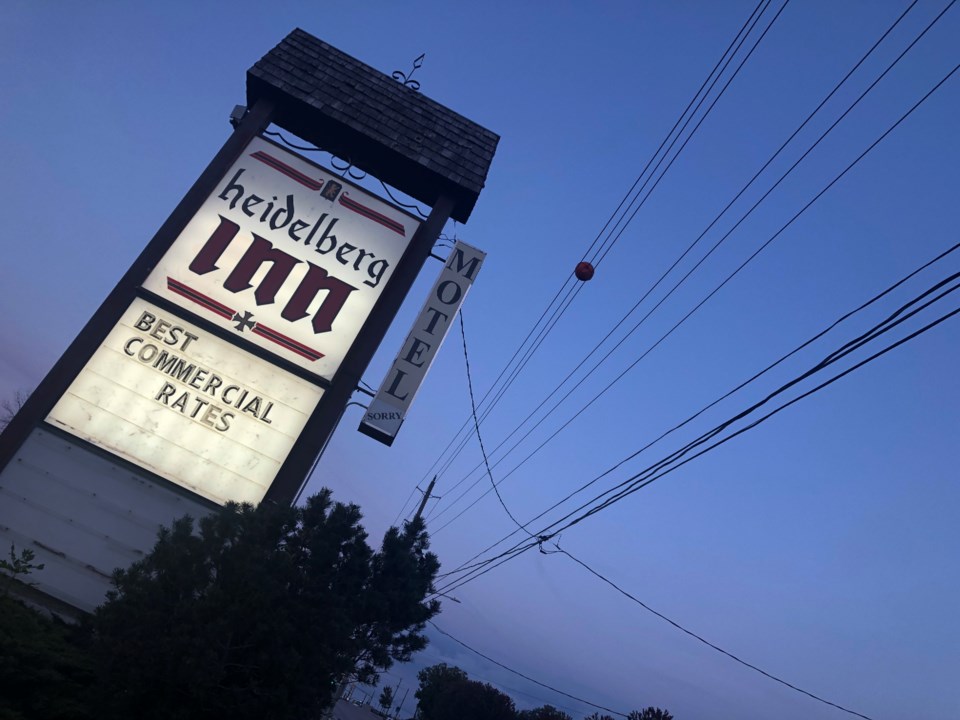A majority of Collingwood council appeared cautiously optimistic, and even a little excited, about the potential revenue the town could get from a tourism tax, during discussions on Monday night.
Staff have brought forward the idea of a municipal accommodation tax in Collingwood, which would add a fee onto hotel bills to the tune of about four per cent, payable to the Collingwood coffers. The tax already exists in other municipalities, with an average rate of about four per cent of the room cost.
Based on what staff called “conservative estimates” the town stands to collect between $880,000 and $1.4 million a year from a four per cent tax on “traditional” accommodation like hotel rooms. There’s potential for another $400,000 to $880,000 income if short-term accommodation like AirBnB became legal in Collingwood and was included in a municipal accommodation tax bylaw. Half of the funds collected through a municipal accommodation tax would have to be allocated to tourism initiatives through a non-profit, and the other half comes with no strings attached.
Mayor Yvonne Hamlin said she foresees even more revenue since the estimates were based on low occupancy rates.
“I’m expecting great amounts of money for us, and great enhancement of our marketing promotion and tourism-related infrastructure if this comes to pass,” said Hamlin. “So I’m in favour of taking it to the next step.”
CAO Sonya Skinner said the town’s current economic development action plan identifies the town’s priority for tourism.
“It talks about not necessarily trying to attract more people, but trying to expand the quality of the experience that they have and the spend per person,” said Skinner.
The committee meeting on April 3 was a preliminary discussion to gauge the will of council for the tax. If council votes in favour of the idea at the next meeting, staff will start working on official recommendations for a Collingwood municipal accommodation tax bylaw and report back to council.
Councillor Brandon Houston urged communication and consultation in the days ahead, predicting the tax could be a significant undertaking for smaller accommodation providers. He was glad to hear there was some stakeholder consultation happening, and suggested the mayor could join in on future discussions with accommodation providers in Collingwood.
“I can see this being quite a bit of legwork … and I would love to have the mayor and or somebody on council as part of that discussion,” said Houston.
He also noted that the legislative requirements for a municipal accommodation tax compel the town to give 50 per cent of the tax revenue to a non-profit tourism organization, and pointed out that there is no Collingwood-specific organization to meet that requirement.
Currently, the town gives $20,000 a year to South Georgian Bay Tourism, a non-profit, for promotion of the region as a tourist destination.
Brennan Kenny, the town’s manager of economic development, said there are options available to the town.
“We can’t simply give it to a tourism department within the town, it has to be an eligible third-party entity that could be something that exists already, like South Georgian Bay Tourism, or it could be something that we create as a municipal services corporation,” said Kenny, listing examples like Muskoka and Markham tourism corporations and a Sudbury economic development organization.
“There are many different forms, we’ll look into each of them and also talk to our partners in the municipal sphere to understand what are the pros and cons and also what are the results,” said Kenny. “The municipal accommodation tax has been in the legislation since 2017, so there are quite a few results out there that our partners across the municipal sphere are happy to share.”
Councillors Chris Potts and Rob Ring asked staff about what kind of auditing and enforcement options would be available to the town to make sure the accommodation providers are giving the municipality the tax and/or are not overcharging guests.
Kenny said a bylaw would have to include some kind of top-line audit for accountability, and Mayor Hamlin suggested that a charge falsely listed as a municipal tax would be a matter for the courts.
According to Kenny, in his discussions to prepare for the council presentation, he learned that The Blue Mountains and Clearview Township are also considering a municipal accommodation tax.
The strategic initiatives committee, which includes all members of council, voted unanimously in favour of pursuing the tax further and asking staff to report back by September with options. The matter will still have to be passed by a vote of council in the regular council meeting April 17.
UPDATE: At their April 17 meeting, council voted unanimously in favour of directing staff to investigate the implementation of a MAT, including community and industry stakeholder consultation, and asking staff to report back no later than September 2023 on potential options.
